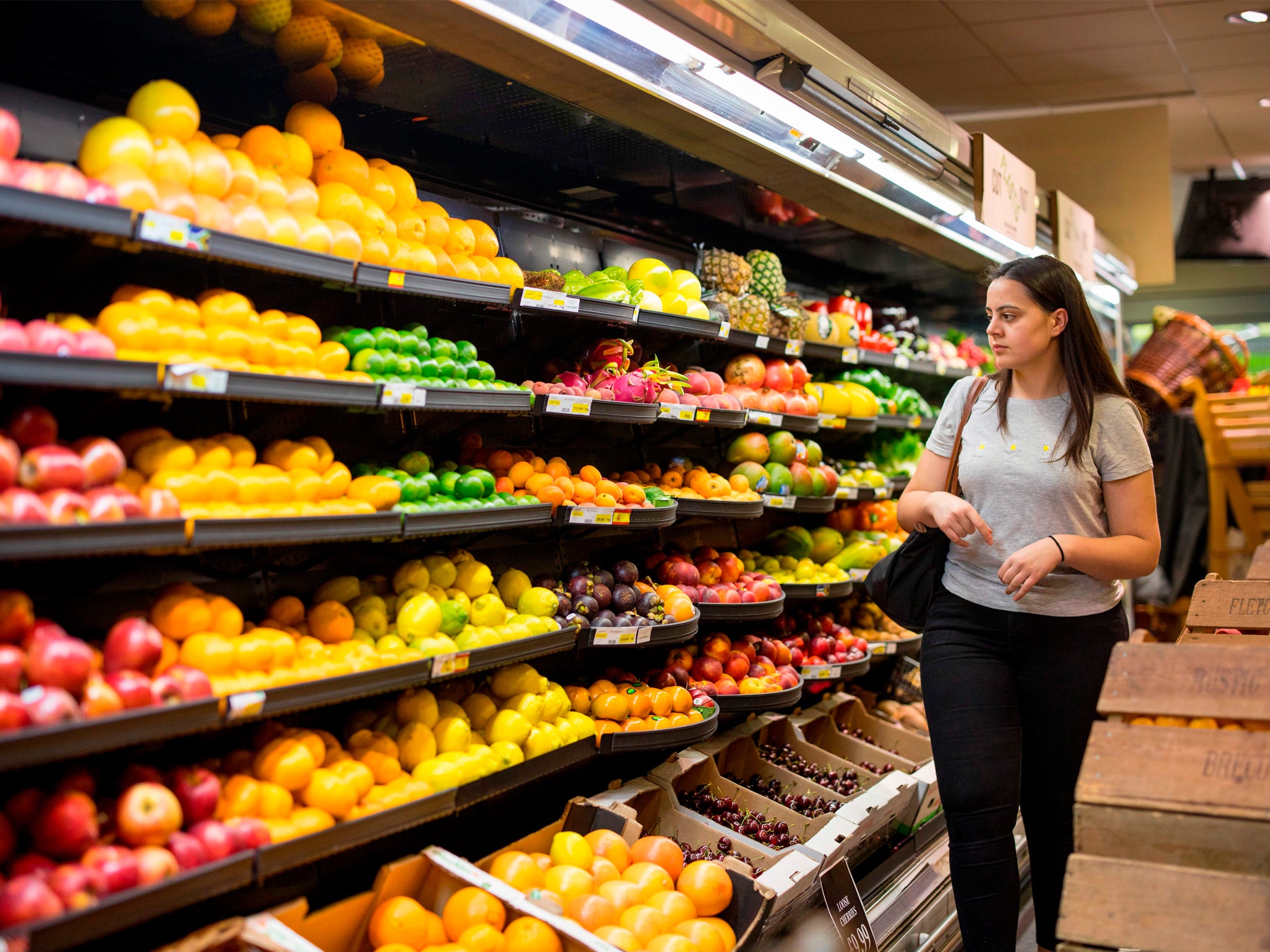No-deal Brexit will lead to £1.3 billion a year rise in food and drink tariffs
Unless deal is secured with EU, supermarket shoppers will see their bills rise £1.3 billion a year in tariffs

Your support helps us to tell the story
From reproductive rights to climate change to Big Tech, The Independent is on the ground when the story is developing. Whether it's investigating the financials of Elon Musk's pro-Trump PAC or producing our latest documentary, 'The A Word', which shines a light on the American women fighting for reproductive rights, we know how important it is to parse out the facts from the messaging.
At such a critical moment in US history, we need reporters on the ground. Your donation allows us to keep sending journalists to speak to both sides of the story.
The Independent is trusted by Americans across the entire political spectrum. And unlike many other quality news outlets, we choose not to lock Americans out of our reporting and analysis with paywalls. We believe quality journalism should be available to everyone, paid for by those who can afford it.
Your support makes all the difference.Supermarket shoppers will face up to £1.3 billion tariff per year on food and drink unless the government secures a free-trade deal with the EU.
New analysis from the UK’s leading trade body, The British Retail Consortium (BRC), reveals shoppers will continue to face higher prices for their weekly shop.
According to the trade body, these mammoth tariffs can be mitigated if a deal is agreed before Christmas.
The report says retailers will have “nowhere to go other than to raise the price of food” while many non-food retailers will face similar “large tariff bills” for EU-sourced products.
Andrew Opie, director of food and sustainability at the BRC, said: “Unless we negotiate a zero-tariff deal with the EU, the public will face higher prices for their weekly shop.”
He added: “This would prevent harm to shoppers, retailers and the wider economy.”
The EU is the largest UK trading partner, where four-fifths of the UK’s food imports are sourced.
The new tariff schedule will be implemented from 1 January next year if a deal cannot be agreed.
The retail body analysed the UK’s new tariff schedule, finding that 85 per cent of foods imported from the EU will face tariffs of more than 5 per cent.
Mince, oranges, cheese and cucumbers are among the staples to increase in price.
It is thought that poorer households will be hit hardest as they spend a higher proportion of income on essentials.
David Potts, CEO of Morrisons, has warned the government to secure a tariff-free deal to mitigate this rise in the price of groceries.
The schedule will see a 48 per cent tariff on minced beef, 16 per cent on cucumbers and 10 per cent on lettuce.
EU goods such as wine from Italy, France and Spain will become £2 more expensive per bottle while cheese will see up to a pound price increase. There will be a 10 per cent tariff on cars made in Europe.
The latest monthly retail price index for August revealed fresh food prices increased by 0.2 per cent, while inflation for ambient food rose to 2.8 per cent for the month.
Mr Opie said: “UK consumers have benefited from great value, quality and choice of food thanks to our ability to trade tariff-free with the EU. There is no time to waste, the UK and EU must hammer out a final arrangement as soon as possible.”
He added: “Coronavirus is already making life hard for consumers, particularly those on lower incomes, and a no-deal Brexit will have a massive impact on their ability to afford essential goods.”
Meanwhile, new analysis by The London School of Economics and UK in a Changing Europe found the cost of a no-deal Brexit could be two or three times as bad as the impact of Covid.
It reported that a “no-deal Brexit would represent a further major shock to the UK economy” with a “major set of changes” to the country’s economic relationship with the EU.






Join our commenting forum
Join thought-provoking conversations, follow other Independent readers and see their replies
Comments